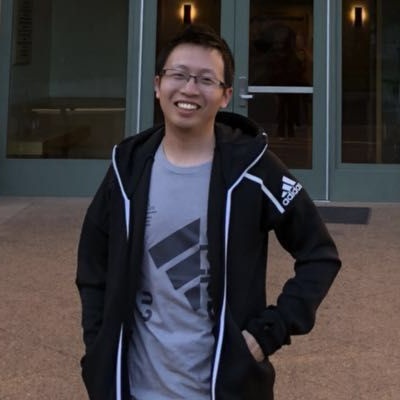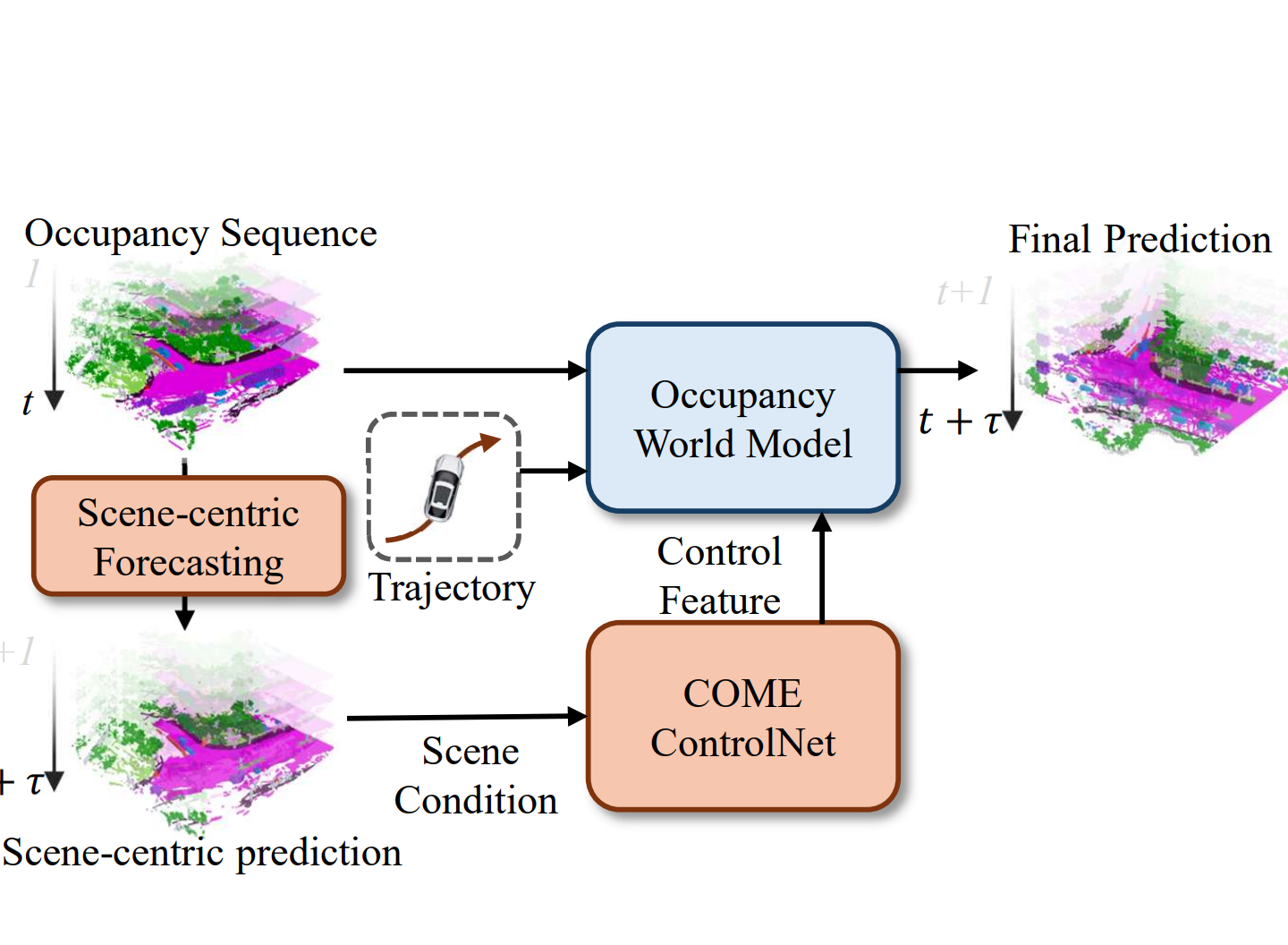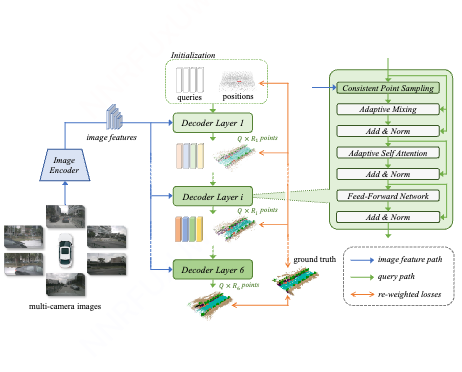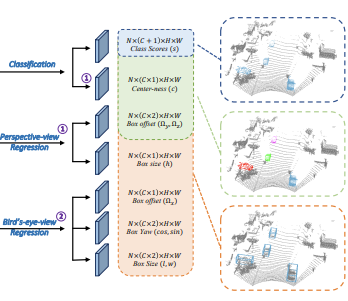|
I am currently a staff engineer at KargoBot and DiDi, specializing in perception for autonomous driving. My expertise lies in the realms of 3D object detection, occupancy prediction, and data fusion, among other areas. Prior to my current role, I worked as an algorithm engineer and sub-core team leader at Aibee. During my time at Aibee, I actively contributed to diverse computer vision projects, encompassing tasks such as face recognition, image retrieval, and car/person re-identification, etc. I completed my Master's degree in Industrial Engineering at the University of Washington, Seattle. Prior to that, I received my Bachelor's degree in Mechanical Engineering from the University of Science and Technology of China, with a GPA ranking of 3rd out of 61 students. E-mail | Curriculum Vitae | Publications | Github |

|
|

|
Yining Shi, Kun Jiang, Qiang Meng, Ke Wang, Jiabao Wang, Wenchao Sun, Tuopu Wen, Mengmeng Yang, Diange Yang NeurIPS, 2025 paper | code COME is an occupancy world model that integrates scene-centric forecasting control for spatially and temporally coherent results. |

|
Jiabao Wang*, Zhaojiang Liu*, Qiang Meng, Liujiang Yan, Ke Wang, Jie Yang, Wei Liu, Qibin Hou, Ming-Ming Cheng *equal contirbution NeurIPS, 2024 paper | code OPUS is an fully sparse and end-to-end framework for occupancy prediction. It utilizes a transformer encoder-decoder architecture to simultaneously predict occupied locations and classes using a set of learnable queries. |

|
Jiabao Wang*, Qiang Meng*, Guochao Liu, Liujiang Yan, Ke Wang, Mingming Cheng, Qibin Hou *equal contirbution ECCV, 2024 project page | paper | code This paper designs a novel stability index (SI) to evaluate the stability of 3D object detection models, and proposes a strong baseline for stability improvement. |

|
Qiang Meng, Xiao Wang, JiaBao Wang, Liujiang Yan, Ke Wang arXiv, 2024 paper The Small, Versatile, and Mighty (SVM) framework is a range-view-based perception system which can perform object detection, semantic segmentation and panoptic segmentation. |

|
Ziyue Zhu*, Qiang Meng*, Xiao Wang, Ke Wang, Liujiang Yan, Jian Yang *equal contirbution CVPR, 2023 paper | code Curricular object manipulation (COM) is a framework for LiDAR-based object detection that incorporates the easy-to-hard training strategy into both loss design and augmentation process. |

|
Qiang Meng, Feng Zhou arXiv, 2022 paper | code SecureVector is a plug-in module designed to accomplish real-time and lossless feature matching among sanitized features, offering significantly higher security levels compared to current state-of-the-art solutions. |

|
Qiang Meng, Feng Zhou, Hainan Ren, Tianshu Feng, Guochao Liu, Yuanqing Lin ICLR , 2022 (Spotlight) project page | paper | 知乎 A pragmatic framework that markedly enhances the performance of federated learning in face recognition while ensuring privacy guarantees. Key components encompass a meticulously crafted differentially private local clustering mechanism and a recognition loss that is consensus-aware. |
 
|
Qiang Meng, Chixiang Zhang, Xiaqiang Xu, Feng Zhou ICCV, 2021 project page | paper | 知乎 | short video | code A general framework (LCE) that is applicable for both cross model compatibility and compatible training in direct, forward, and backward manners. |
 
|
Qiang Meng, Shichao Zhao, Zhida Huang, Feng Zhou CVPR, 2021 (Oral presentation) project page | paper | 知乎 | short video | code A novel loss which equips feature magnitudes with the ability to represent face qualities, as well as achieves better performances on face recognition and clustering. Remarkably, no additional labels are required! |

|
Qiang Meng, Xinqian Gu, Xiaqing Xu, Feng Zhou arXiv, 2022 paper A simple but effective mining-during-training strategy that enables models to be trained in an end-to-end fashion on multiple datasets. |

|
Xiaqing Xu, Qiang Meng, Yunxiao Qin, Jianzhu Guo, Chenxu Zhao, Feng Zhou, Zhen Lei AAAI, 2021 paper | 知乎 We design a face template searching space with decomposed crop size and vertical shift, and propose the Face Alignment Policy Search (FAPS) to find optimal alignment templates for face recognition. |

|
Qiang Meng, Xiaqing Xu, Xiaobo Wang, Yang Qian, Yunxiao Qin, Zezheng Wang, Chenxu Zhao, Feng Zhou, Zhen Lei arXiv, 2021 paper An efficient large-pose face recognition method that leverages facial landmarks to disentangle pose-invariant features and incorporates a pose-adaptive loss to dynamically address the imbalance issue. |